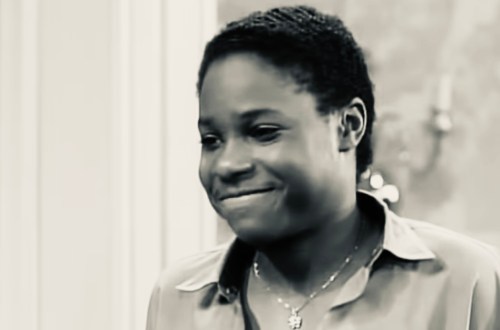 Examples of media bias are too numerous for me to comment on with any regularity. But sometimes I read things so egregious that I have to say something. An outrageously biased piece appears in a recent New York Times article by Lydia Polgreen and Laurie Goldstein.
Examples of media bias are too numerous for me to comment on with any regularity. But sometimes I read things so egregious that I have to say something. An outrageously biased piece appears in a recent New York Times article by Lydia Polgreen and Laurie Goldstein.
The article concerns the rift in the Anglican communion (about which I have recently written) and a theologically conservative Bishop from Nigeria. The bias begins in the headline of the piece, “At Axis of Episcopal Split, an Anti-Gay Nigerian.”
Notice, first of all, that the headline suggests that a Nigerian is somehow the cause of the current controversy. Yet everyone knows that the crisis in the Anglican communion is owing to the Anglican churches in America and Canada that have decided to forsake clear biblical teaching on the issue of homosexuality. It is likely that there would not even be a split right now if the Americans had not decided to ordain a practicing homosexual as one of its bishops.
Notice second of all, that the Nigerian church leader is described as “anti-gay.” The authors could have said he was “traditionalist,” “conservative,” or even “pro-Bible.” But on the contrary, the authors chose a negative moniker that suggests an antipathy towards gay people as persons. The title paints a dark picture of the Nigerian bishop by excluding the possibility that the Nigerian bishop might actually love sinners while hating sin.
If you think I am being hyper-sensitive about a title, then go read the rest of this “news” story for yourself. I think you’ll see that the rest of the article bears out the bias implicit in the title.
“At Axis of Episcopal Split, an Anti-Gay Nigerian” -Â by Lydia Polgreen and Laurie Goldstein




2 Comments
Nicholas Cardot
You are right. There is definitely a bias against those who stand for God in any way.
Faimon
A couple of quick thoughts:
1) I am pretty sure that the people who write the headlines are not the people who write the stories.
2) The crisis in the Anglican communion (and I am an Anglican, living in England) is perhaps precipitated by the Gene Robinson situation, which has been mirrored in England with Jeffery Johns. But the crisis has only been exacerbated by people like Archbishop Akinola, whose actions detract from evangelical Anglicans who are trying to work within the Anglican church to reform it. Akinola’s actions, whether good-intentioned or not, have a negative impact because he appears to be quite self-serving and schismatic. Thus, even those who repudiate his methods while agreeing with some of his views are cast as homophobes and the like.
3) Is it loving the sinner to recoil in horror (or disgust, or surprise, or whatever) when you shake the hand of a homosexual? Did Jesus say “‘oh!’ and jump back” when confronted with tax collectors and prostitutes.
4) Is it loving the sinner to support a measure that criminalizes activities even for non-Christians? I know that he said he would support any bill that would ban homosexual marriage, and he wouldn’t speak to the specific provisions of the current bill. But shouldn’t he speak out against this bill? To want to confine marriage to a man or woman is one thing, but to blindly support such a draconian bill arguably does more harm than good. The US State Department has warned that it violates ‘basic human rights.’ This is the same State Department that is part of the executive branch, under Condoleeza Rice and GWB, right? Certainly not a left-wing cabal, that.
5) Finally, the second-to-last paragraph of the story is interesting: “Self-seeking, self-glory, that is not me…No. Many people say that I embarrass them with my humility.” Are these the words of a humble man?
6) The authors of the article and/or the headline may dislike Christians, I don’t know. But they have not, in my opinion, portrayed Archbishop Akinola in any more of a negative light than his own quotes.